City Limits celebrated its 47th anniversary on Oct. 26 by inducting four remarkable New Yorkers into the City Limits’ Gala Hall of Fame: United Way of New York City President & CEO Grace Bonilla, Mission Magnified Principal Neill Coleman, Community Service Society President & CEO David R. Jones and WNYC radio host Brian Lehrer.
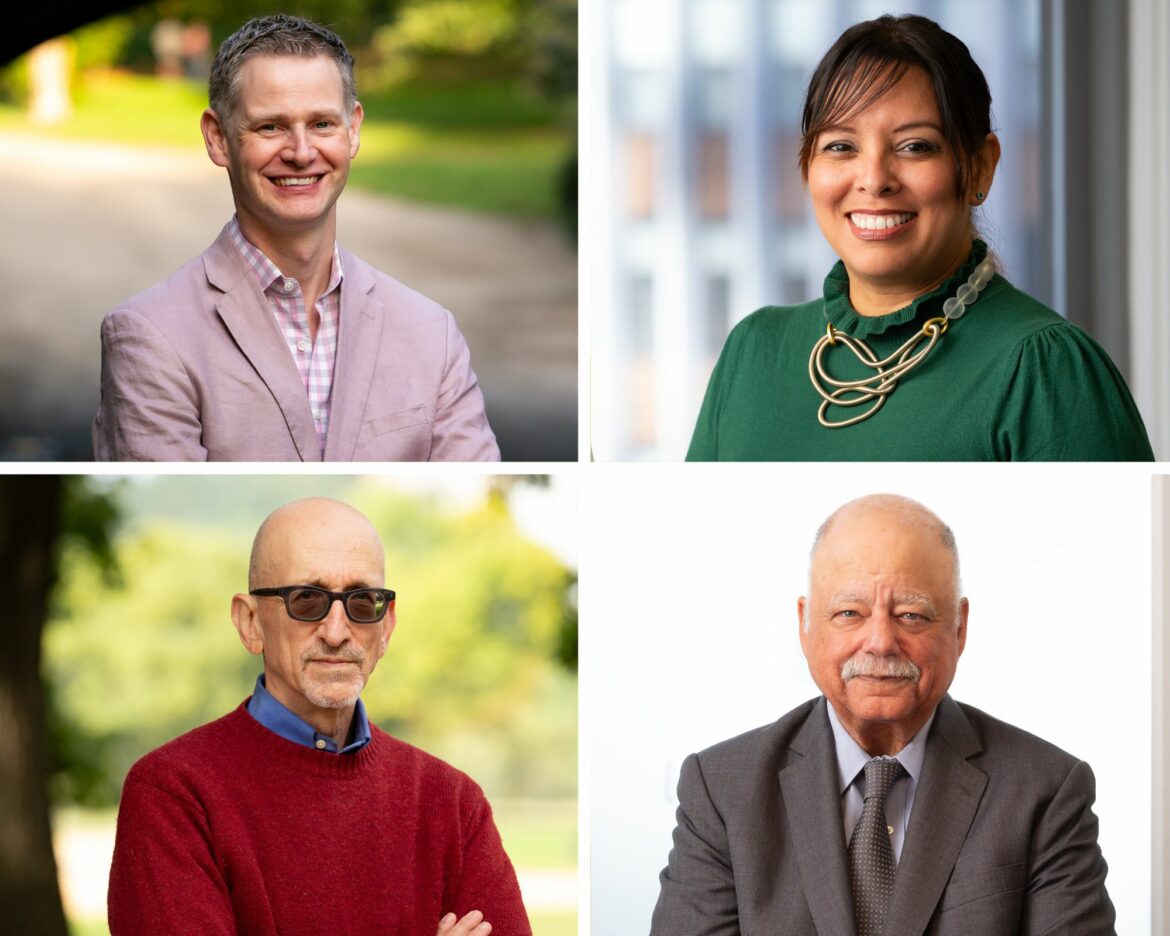
Adi Talwar
City Limits’ 2023 Gala Hall of Fame Inductees: Neill Coleman, Grace Bonilla, Brian Lehrer and David R. Jones.City Limits celebrated its 47th anniversary on Thursday, marking nearly half a century of empowering New Yorkers with in-depth, nuanced local reporting.
As part of this year’s milestone, City Limits honored four remarkable New Yorkers by inducting them into the City Limits’ Gala Hall of Fame. These individuals exemplify and uphold the values of City Limits to create a more just and equitable city. Read more about them below.
Grace Bonilla, United Way of New York City President & CEO
“To find solutions so that we can serve New Yorkers the way they deserve“
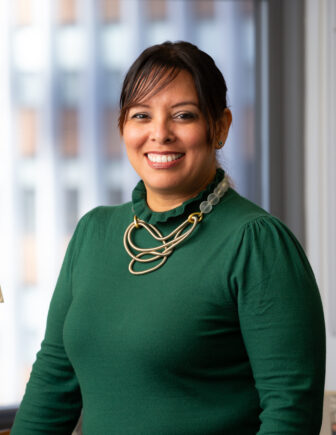
Adi Talwar
Grace BonillaLast year, when Grace Bonilla was named president and CEO of United Way of New York City (UWNYC), it was a homecoming of sorts.
Bonilla, who has spent her career working to meet the needs of the city’s most vulnerable residents via both the government and nonprofit sectors, had more recently been focused on international work since leaving her role with the de Blasio administration in 2020.
“I realized that as much as I loved working internationally, fixing and being part of the solution for problems at home—there’s nothing like it,” Bonilla said of joining the storied UWNYC, which launched in 1938 to aid New Yorkers as the nation emerged from the Great Depression. “And there’s nothing like the city.”
Bonilla, whose parents came to the United States from Ecuador in the late 60s and early 70s, said her upbringing in the predominantly immigrant community of Jamaica, Queens, set her early on a path in public service. “I saw trends that were amazing and beautiful and really built my community, and also trends that got in the way of our education or access to services that our families needed,” she said. “I grew up and understood how these decisions are made, and how systems really determine how neighborhoods are served.”
Bonilla officially caught the “policy bug” in college, while interning for the New York State Assembly. After graduating from Brooklyn Law School, she was determined to pursue a career with Legal Aid, but ended up taking a role as an attorney for the City of New York “and immediately fell in love with how big systems are” at the government level, allowing for large-scale impact.
“When you get it right, you get it right for so many people so quickly,” she said.
Bonilla spent more than a decade working at the city’s Human Resources Administration, the largest social services agency in the nation, including as an administrator where she helped oversee the response during times of crisis. During Hurricane Sandy, the storm flooded HRA’s offices in lower Manhattan, and left countless New Yorkers in need without power for days. “A lot of it was just going on foot with very tall boots,” to check in on clients, including homebound New Yorkers, Bonilla recalled.
COVID-19 presented a different kind of challenge: HRA had to shift both its own staff and its public benefits system to remote access at a time of unprecedented need, as the city shed hundreds of thousands of jobs and many residents struggled to pay for rent, groceries and other necessities. “It was both: how do we provide services to New Yorkers as quickly as possible, and how do we keep our people safe?” Bonilla said. “It was probably one of the hardest things I’ve had to do.”
Now, as head of UWNYC, which supports hundreds of community-based organizations across the city, Bonilla leans on both that government experience and her past work in the philanthropic world “to find solutions so that we can serve New Yorkers the way they deserve.”
“United Way has always stood in the middle of that storm,” she said. “Where they’re really advocating for nonprofits, understanding the complex problems and bringing government, the private sector and nonprofits to the table to have those conversations.”
The organization is currently focused on addressing the areas of food insecurity, education, justice and health equity. This past spring, UWNYC produced a report assessing the “true cost of living” in the city to take stock of how residents are faring economically three years after COVID-19 hit.
“Before the pandemic, about 30 percent of New Yorkers couldn’t make ends meet. Post-pandemic, it’s 50 percent,” Bonilla said of the report’s findings.
“I think that the DNA of the United Way is really to bring forward the voices of those that don’t get a seat at the table, for the service of upward mobility for everyone—really making sure that any New Yorker, regardless of zip code, can have the opportunity to make it in the city,” she added. “And while before it was hard, it’s getting even harder.”
We asked all of our honorees: Tell us about a favorite place of yours in New York City, and why it’s special to you.
“I spent most of my career in downtown Manhattan,” Bonilla said, saying she frequently took walks through Battery Park to clear her head and regroup when she needed it. “Battery Park in that area is definitely one of those spaces.”
Neill Coleman, Principal of Mission Magnified & Former ED of Trinity Church Philanthropies
“I’m a big believer in philanthropy playing a role in influencing public policy”
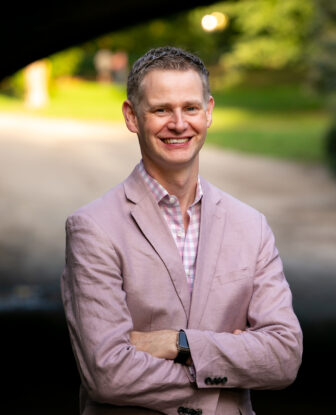
Adi Talwar
Neill ColemanWhen Neill Coleman founded his consulting firm, Mission Magnified, he set out not only to assist charitable foundations in using their resources most effectively, but to help them “think about how to engage with public policy in order to achieve impact at scale.”
“I’m a big believer in philanthropy playing a role in influencing public policy,” said Coleman, who has spent much of his career promoting collaboration between nonprofits and government as a means of driving change. “And I really help them think through how to approach that strategically. That includes, obviously, the grant making that they’re doing, but also how to use the foundation’s influence and voice.”
That’s something Coleman has experience in: During his five years as vice president for global communications at The Rockefeller Foundation, he created and managed a $10 million annual grants portfolio, with a focus on funding journalism and storytelling campaigns that would help draw wider public attention to the foundation’s priority issues.
That included supporting a six-year series at UK-based newsroom The Guardian, called Guardian Cities, about how urban areas across the world are tackling issues like climate resiliency and poverty.
“It was really a chance to showcase cities that were doing creative, smart projects for resilience, equity, for livability,” he explained. “The Guardian reached policymakers and decision makers globally, so someone in a particular city could be reading a story and be inspired by what someone in another city was doing.”
Support for nonprofit and public service journalism was something he continued to prioritize during his next role as the executive director at Trinity Church Wall Street Philanthropies, which has helped fund reporting on housing and homelessness in several newsrooms, including City Limits.
“Any increased coverage on the challenges and the solutions that are out there around homelessness and affordable housing is a good thing,” Coleman said. “A story in City Limits that highlights either a particular problem with a government policy, or an opportunity for changing government policy, can be really powerful.”
During his time at Trinity, Coleman spearheaded the Philanthropies department, where he expanded grant-making from $10 million to $57 million a year. Under his tenure, the organization supported community groups assisting New Yorkers with emergency rent relief applications during the pandemic, and more recently, nonprofits working on the ground to aid asylum seekers arriving in the city from the southern border.
Coleman, a native of Scotland, has long been drawn to both media and housing policy. His first job, as a college student in Glasgow, was at a homeless shelter. “That was my first deep engagement with the issue of homelessness and kind of the start of that as a passion for me throughout my career,” he said.
He later worked in nonprofit and government communications, including for the city’s Department of Housing, Preservation and Development (HPD) under the Bloomberg administration, where he fielded press inquiries from reporters, including City Limits. He then moved to Washington, D.C., to serve as chief external affairs officer for the U.S. Department of Housing and Urban Development (HUD) during President Barack Obama’s first term.
Coleman, who has been recognized as an industry leader―making both Crain’s New York Notable in Nonprofits and Philanthropy list and the City & State Pride Power 100―said his focus now is on helping other philanthropic organizations leverage the power of collaboration with other sectors to expand their reach.
“If you want to achieve change on issues like homelessness at scale, you have to engage government and also the private sector,” he said.
We asked all of our honorees: Tell us about a favorite place of yours in New York City, and why it’s special to you.
“On the deck of a NYC ferry,” Coleman said. “When we lived in Long Island City I would take the ferry to work and I loved seeing the diversity of—and changes in—the city manifesting on the skyline.”
David R. Jones, President & CEO of Community Service Society
“You have to shift to meet their needs”
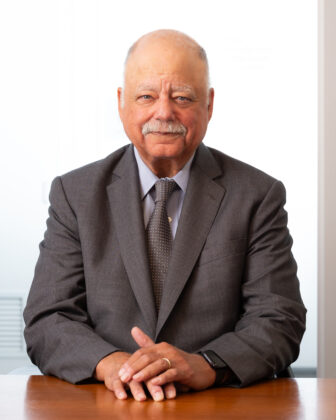
Adi Talwar
David R. JonesAfter more than 30 years at the helm of the Community Service Society (CSS), there are few aspects of New York City policy that David R. Jones hasn’t had a hand in.
Well-recognized as a tireless advocate for improving the lives of low-income New Yorkers, Jones has led the nonprofit across a range of campaigns over the decades, from voting rights to fighting for paid sick leave.
CSS’ work—which includes social service programs, legal and political advocacy, and policy research—has evolved over the years to respond directly to the needs of communities at a given time, according to its longtime director.
“The watchword for CSS is, we don’t become fixated on one particular way of working for our constituents,” said Jones, noting the organization’s use of the word “constituents” over the more common social services parlance of “clients.”
“The problems don’t remain [the same]…you have to shift with what’s confronting the constituents,” he continued. “You have to shift to meet their needs.”
Born and raised in Crown Heights, Jones got involved early in politics and policy: At age 9, he helped campaign for his father, Thomas R. Jones, the first Black assemblyman to represent central Brooklyn and a longtime judge. The younger Jones carved a similar path: interning for the late Sen. Robert F. Kennedy and later, after law school, working on Jimmy Carter’s presidential campaign.
Jones then went to work for Mayor Ed Koch, serving first as a special adviser and then as youth services commissioner, what he described as an “extraordinary experience,” that has informed his advocacy around issues that impact young New Yorkers for decades after.
He came into his role at the Community Service Society in 1989. In those days, the organization was focused on voting rights, fighting a rule that prohibited New Yorkers from casting a ballot in municipal elections if they’d failed to vote in the last one—an attempt to disenfranchise poor residents, Jones said.
They were successful in getting a judge to overturn the purge of voters from the rolls, and then embarked on what Jones described as “the largest series of nonpartisan voter registration campaigns in the city’s history,” with outreach focused on connecting with young, first time voters, often through the city’s Black churches.
Under Mayor Giuliani, CSS worked to block the Republican mayor’s attempts at privatizing the city’s public hospital system (Jones was a member of the Health and Hospitals Corporation board at the time, having been appointed by prior Mayor David Dinkins). In the wake of the September 11th attacks, CSS focused on supporting downtown restaurant and hotel workers who’d lost their jobs, and the families of workers killed in the tragedy.
For the last 20 years, to get a better pulse on the needs of the city’s low-income residents, CSS has conducted a regular opinion survey called “The Unheard Third”—reflecting the reality that there has “never been a real focus among pollsters” at including those voices, Jones said.
“[It] focuses on getting information directly from people who are confronting day to day issues,” he explained. “And it’s led to some significant changes in what we do.”
The 2015 Unheard Third survey, for example, found that more than a quarter of low-income residents struggled to pay for subway or bus fare, with transportation costs impacting their ability to travel to jobs or medical appointments.
In response, CSS helped launch the “Fair Fares” campaign, asking the city to subsidize half-priced MetroCards for New Yorkers living at or below the poverty line. It was ultimately approved in the 2018 budget, and has expanded in the years since.
We asked all of our honorees: Tell us about a favorite place of yours in New York City, and why it’s special to you.
“City Island, because I used to take my kids there all the time,” Jones said. “[And] Children’s Museum in Brooklyn—my father helped save it when they were going to move it to Manhattan.”
Brian Lehrer, Host of WNYC’s “The Brian Lehrer Show”
“Expanding the tent of whose voice gets on the radio”
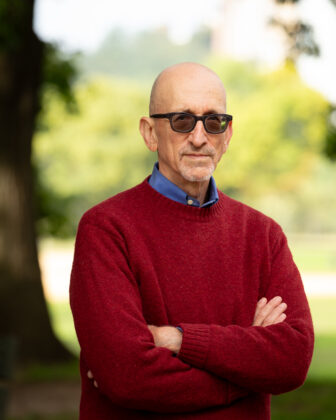
Adi Talwar
Brian LehrerDuring one of his earliest jobs after college, at a rock radio station in Albany, Brian Lehrer pitched an idea. At the time, federal Fairness Doctrine rules required that broadcast stations devote a portion of their content to public affairs issues.
So in addition to hosting a music show Mondays to Fridays, he took on a weekly, news-oriented talk radio program. “I asked, well, for my sixth day, why don’t I come in late Sunday and open the phones? And to my shock they said yes,” Lehrer recalled.
He’s been opening the phones, in some capacity, ever since. As longtime host of WNYC’s The Brian Lehrer show—launched in 1989 under the title “On the Line”—Lehrer has interviewed multiple mayors, U.S. presidents and countless other stakeholders and newsmakers.
But he’s best known for airing the voices of everyday New Yorkers, asking them to share their opinions, perspectives and personal stories. When MTA Chair and CEO Janno Lieber was on the show last year, Lehrer asked bus drivers and subway train operators to call in. During the spring of 2020, as the heaviest months of the COVID-19 lockdown had many New Yorkers seeking solitary solace in their local parks and other natural areas, Lehrer had callers recreate the bird songs they were hearing in their neighborhoods.
“That participatory element is something that I was always interested in,” Lehrer said. But he wanted to avoid the “run of the mill talk show,” format.
“You know, the sort of old-style, most ham-handed way of doing it is: ‘Call in everybody and tell us what you think about this issue,’” he said. “When you just ask it that way, in my experience, you get the same 10 or 15 people calling over and over again.”
He received a more diverse range of voices when he specified his requests: asking UPS workers to dial in during a segment about their ongoing contract negotiations, for example, or airing the perspective of Haitian Americans for a discussion on the crisis back home.
“If they felt invited, if they felt that there was a relevancy they had that would be welcomed and valued, then we got all kinds of people calling in,” Lehrer said. “It’s not just simply having an interest in talking to people…but also expanding the tent of whose voice gets on the radio.”
A native of Queens, Lehrer studied music and communications at SUNY Albany—where he honed his audio skills as a DJ for the campus radio station—and earned a master’s degree in journalism from Ohio State and another in public health from Columbia University.
His reporting has earned him a number of awards, including a 2007 Peabody for “Radio That Builds Community Rather Than Divides.” In 2019, to honor Lehrer’s 30th anniversary on WNYC, the station launched The Lehrer Prize, awarded annually to a person or organization “that has contributed meaningfully to improving the quality of life in New York City and the surrounding region.”
Though he’s interviewed countless famous names and powerbrokers, Lehrer says his decades of on-air conversations have given him a deeper appreciation for journalists, who are some of his favorite guests. His show is a frequent platform for reporters and editors, particularly those covering local issues in New York.
“Journalists get the job done, in actually informing the people and having maybe the deepest and least agenda-driven takes on all kinds of issues,” he said.
We asked all of our honorees: Tell us about a favorite place of yours in New York City, and why it’s special to you.
“Inwood Hill Park, at the northern tip of Manhattan near where I live,” Lehrer said, citing the greenspace’s natural forest, public tennis courts, sweeping views of the Hudson River and “the sweetest fenced-in Little League field that my son was lucky enough to play in.”
–Interviews and profiles by Jeanmarie Evelly









